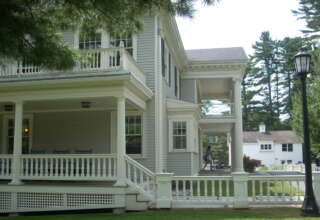
The British school also embraces the British society’s emphasis on collective identity—as well as its conservative predilections and hesitancy about embracing change. The British school focuses on the group and community, rather than the individual. Groups have a reality. Each group has its own purposes and dynamic; furthermore, these purposes and dynamics are something more than the composite of interwoven interpersonal interactions and co-dependencies. One can speak about group behavior in a workshop conducted by a British school facilitator. In fact, the notion that one acts independently of group dynamics is considered naïve, at best, and often is considered a clear indication that one is acting out the myth of autonomous action for the group. This assignment of an autonomy role is intended by the group to help its members collectively to achieve some tacitly held or unconscious goal—such as the avoidance of collective responsibility.
Continental School
This third school has little patience with architectural analogies and is highly critical of both the superficiality of American society and inherent conservatism of British society. Members of the Continental school could care less about the architectural design of a home. They want to know: who owns the house? Who is invited in? Who can come in (invited or not)? Who gets to redecorate or remodel the house? Who gets to comment on what the house really looks like?
The Continental school is all about the architect, builder, owner, tenant and architectural critic—not the building itself. Proponents of this school wish to “pierce the veil.” They want to go back to the fundamental assumptions underlying the design of the building and even more importantly they want to go back to the reasons for constructing this building in the first place. Why a ranch house? Why a Victorian mansion?
Proponents of the Continental school also want to know about the people who enter the building. Who is allowed in? Who wants to enter? Who wants to leave? Furthermore, the agenda of the Continental school is to find out how the design and layout of the building influences (even determines) the nature of interactions among people who live (or work) in this building. What stories do people in the building chose to tell (or are allowed to tell) about this building and about the human interactions that occur inside (and outside) the building? The Continental school always encourages us to move somewhere else in our analysis. We move from the building to the builder (de-construction), and from the building to its inhabitants and ways in which the inhabitants interact with one another and the building.









